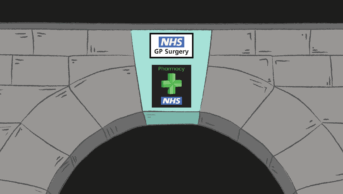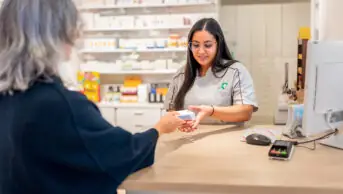
Shutterstock.com
Two pharmacies in England have begun initiating access to oral contraceptives for patients, as part of the ongoing NHS Community Pharmacy Contraception Service pilot, with others expected to follow in 2023.
The pharmacies, located in Stoke-on-Trent and Portsmouth, are now able to supply an oral contraceptive pill using a patient group direction — if found to be appropriate after an initial clinical check — without the patient having to visit their GP first.
Tier 2 of the pilot began in October 2022 and will run until September 2023. It is the second stage of the NHS Community Pharmacy Contraception Service pilot, with patients able to access the service through self-referral to a participating community pharmacy.
Pharmacies participating in tier 1 of the pilot were able to supply repeat prescriptions for oral contraception that had first been initiated by another clinician.
The pilot is a first for England, although community pharmacies in Scotland have been able to initiate patients on a three-month supply of the oral contraception desogestrel as a form of bridging contraception since November 2021.
Describing the pilot, NHS England said the aim was to “relieve the burden on wider primary care and sexual health clinics and provide improved access for patients”.
An inquiry, published on 26 September 2022, by the All Party Parliamentary Group on Sexual and Reproductive Health in the UK into patient access of contraception heard that “one third of women cannot access contraception from their preferred setting and … that people from deprived or marginalised groups are particularly affected”.
In response to a freedom of information request, NHS England told The Pharmaceutical Journal on 13 December 2022 that there are “currently 281 pharmacies registered to pilot tier 1 of the NHS Community Pharmacy Contraception Service”.
NHS England added that there are “currently two pharmacies registered to pilot tier 2” of the service.
Miqdad Master, superintendent pharmacist at Bobat Pharmacy in Portsmouth — one of the two pharmacies to pilot tier 2 — said that he has “yet to see any patients” through the second stage of the pilot.
“I tend to inform patients who come in on a repeated basis of the recent move of the pilot from tier 1 to tier 2 in the hope that this will increase the uptake of the service, so hopefully we will soon see some patients signposted or self-referred,” he said.
To be able to offer tier 2 of the contraception service, pharmacies must have completed a minimum of ten consultations under tier 1 of the service.
“It is expected that tier 1 and tier 2 will operate as complementary services and operate concurrently,” the service specification says.
“On initiation, the quantity of oral contraception supplied should not exceed three months,” it says, adding that, after supplying an initial prescription, “further repeat supplies of hormonal oral contraception can be made under the tier 1 service specification”.
Gareth Jones, director of corporate affairs at the National Pharmacy Association, said the start of the tier 2 pilot is “a significant step towards expanding community pharmacy’s offering in this area and a landmark moment in improving access to sexual health services and women’s health”.
“The move for pharmacists to become independent prescribers from 2026 can also help to meet future demands for women’s health care and reduce wider pressures on the NHS, freeing up capacity in other parts of the system,” he said.
Janet Barter, president of the Faculty of Sexual and Reproductive Healthcare, said the faculty “fully supports the move to allow pharmacists to initiate oral contraception for patients”.
“The fragmented sexual and reproductive healthcare system is notoriously difficult for women to navigate, and successive cuts to public health budgets have made it even harder for women to access the contraception they need,” she said.
“This move will make it easier for women to access essential contraception to avoid unplanned pregnancies and could also relieve unnecessary pressures on GPs.”
Tier 1 of the service had been expected to roll out nationally as an advanced service from 11 January 2023, meaning all contractors could register to provide repeat supplies of oral contraception.
However, a statement published on the Pharmaceutical Services Negotiating Committee website on 14 December 2022 said that it will not start on that date, “but it is expected to commence in early 2023”.
“The exact start date is yet to be set, as now the service specification has been published, community pharmacy IT system suppliers need time to develop IT support for the service, so this is available to contractors from the service commencement date,” the statement said.


